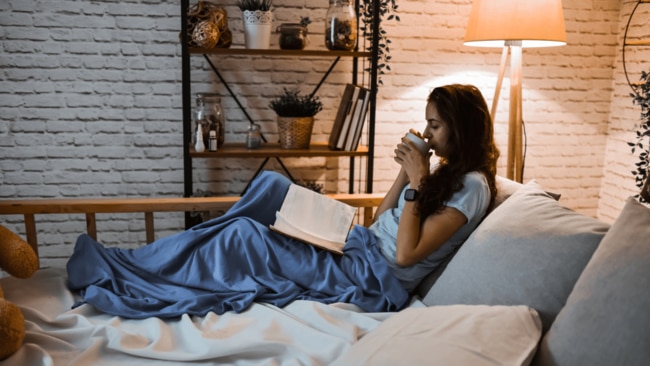An inconsistent sleep schedule could increase risk of heart attack and stroke
Start prioritising a good night's sleep
Lifestyle
Don't miss out on the headlines from Lifestyle. Followed categories will be added to My News.
We know a bad sleep isn’t good for our health. But according to research, regular poor and inconsistent sleep can boost your risk of worse health issues than irritability and tiredness.
Many of us find ourselves sleeping later and later, pushing ourselves to read one more page or watch one more episode before going to bed.
We already know shift workers’ sleep schedules put them at risk of a variety of health conditions, but new research suggests your changing bedtimes could be bad for your health too, no matter how long you’re asleep for.
How your sleep schedule affects your health
Recently published in the Journal of Epidemiology and Community Health, the study analysed sleep data from over 72,000 people aged 40 – 79 who had no history of major adverse cardiovascular events (MACE).
As per well+good, cardiovascular events include heart attacks, heart failure, strokes or other cardiovascular conditions resulting from damage to heart muscles. After following their sleeping patterns, the research team found that irregular sleepers were at higher risk of MACE than those who went to bed and woke up at similar times each day.
You may think you can cancel out an irregular sleep schedule by just sleeping longer, but according to the study, that’s not the case.

The team involved found that getting the recommended amount of sleep didn’t change the impact of participants’ irregular bedtimes on their health. Your sleep schedule doesn’t just impact your cardiovascular health either.
The researchers suggested the impact of our sleep schedules on hormonal regulation, immune function and eating habits could be behind the increased risk of heart attacks and strokes when sleeping irregularly.
Sleep regulates stress
They said poor sleep patterns can increase the release of stress hormones and lead to “heightened sympathetic nervous system activation”.
Stress hormones like cortisol are essential for our survival, but high levels can affect your weight, blood pressure and strength.

Sleep’s role in our immune function
The research team also said sleeping at irregular hours could result in inflammation and disrupted immune function. So if you always feel like you’re coming down with something, you may want to look at your bedtime.
Changing sleep and waking times can also change the times you eat.
The researchers claimed ‘it is possible that irregular sleep-wake patterns may reflect variability in the timing of light exposure and timing of meals and physical activity, all contributors to circadian disruption.’
If you’re skipping meals, or eating too close to your bedtime, you can experience indigestion, heartburn, and discomfort and slow your metabolism down.

How to improve your sleep schedule
Many people are quick to stock up on melatonin, magnesium and essential oils to help them get to sleep at their desired time, but there are many other options to try before reaching for sleep aids.
#1. Build a routine
Establishing a bedtime routine is a great way to teach your brain when it’s time for sleep. Treat yourself to some relaxation time before bed with a warm shower, lavender spray on your pillow, dimmed lights, white noise, or anything you think will make you sleepy.
#2. Move your alarm clock
It can be easy to hit the snooze button repeatedly in the morning. Put your phone, clock or whatever you use as an alarm out of arm's reach so you have to get up when it goes off.

#3. Get some sun
Experts recommend getting outside or at least looking out your window as soon as you wake up. Morning sunlight helps regulate your circadian rhythm and boosts your release of cortisol at the ideal time of day. It’s also a great way to get some vitamin D and movement in.
#4. Put down the coffee
Limit your caffeine consumption in the hours leading up to your bedtime. Caffeine has a half-life of about five hours, so even if your last cup was hours ago, it can still be stopping you from falling asleep.
#5. Put your phone down
The blue light our screens emit can make our bodies secrete less of the sleep hormone melatonin, so if you’re trying to fall asleep, staring at your phone won’t help you doze off.
Originally published as An inconsistent sleep schedule could increase risk of heart attack and stroke





